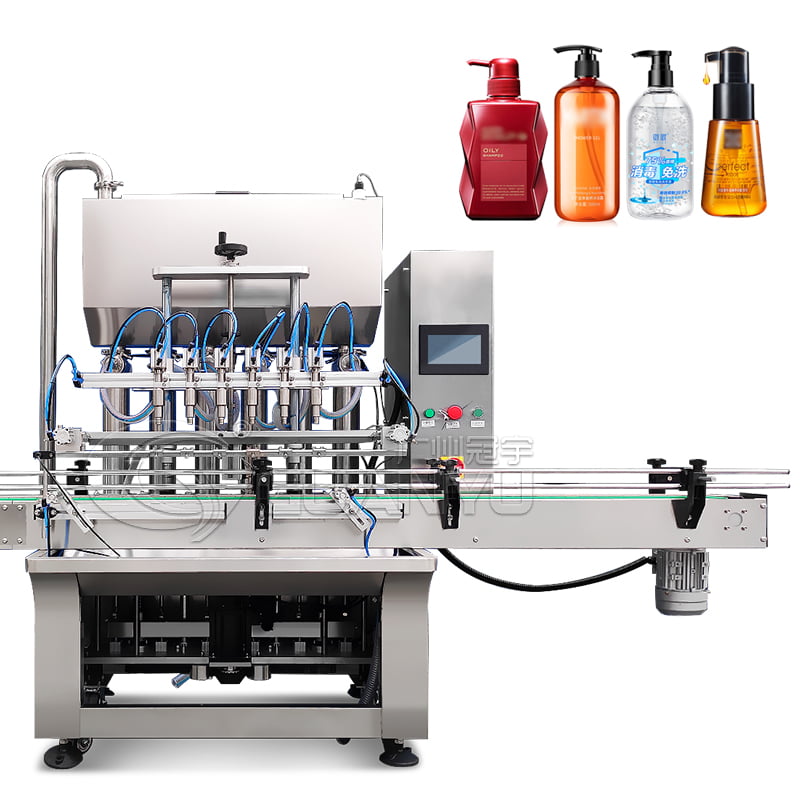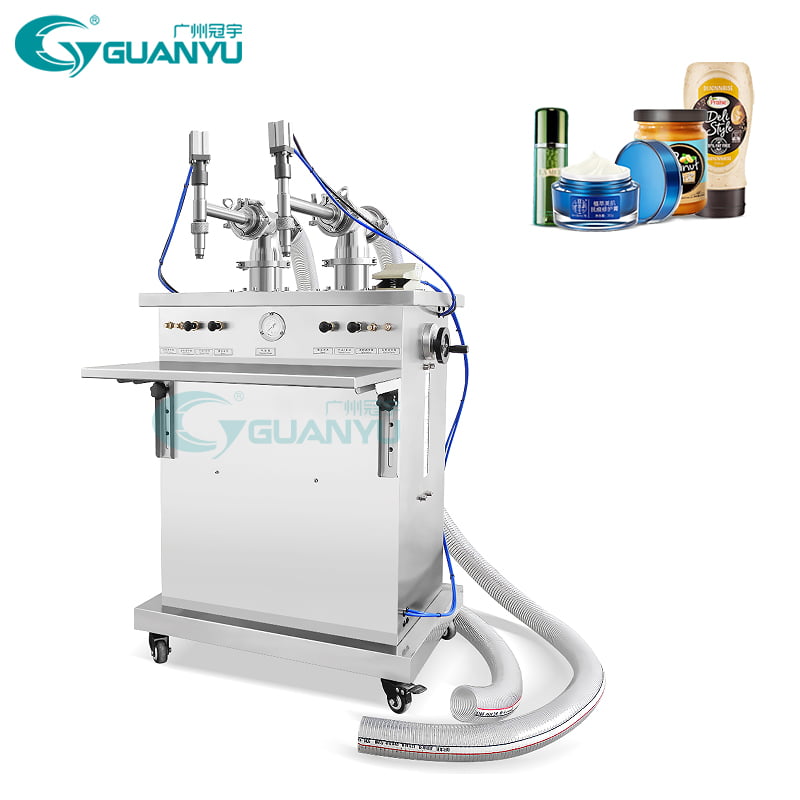Applications and Industry Use

Filling machines play a pivotal role across a variety of industries, enhancing efficiency, précision, and hygiene. In the food and beverage sector, these machines are indispensable for bottling beverages, ranging from carbonated drinks to bottled water and juices. They ensure consistent fill levels, which is crucial for maintaining brand integrity and customer satisfaction. En plus, FM help maintain stringent hygiene standards, reducing the risk of contamination and ensuring compliance with food safety regulations, such as those set by the FDA.
The pharmaceutical industry also heavily relies on filler for their operations. These machines are essential for filling vials, syringes, and ampoules with medications, vaccines, and other pharmaceutical products. The precision offered by filling machines in this sector is critical, as even the slightest deviation in dosage can have significant consequences. En outre, the use of FM helps in adhering to strict industry standards like the Good Manufacturing Practices (BPF), ensuring product safety and efficacy.
In the cosmetics industry, FM are utilized for packaging a wide range of products, including creams, lotions, and perfumes. These machines not only improve the efficiency of the production process but also ensure that each product is filled with the exact amount required, which is essential for maintaining consistency and customer trust. De plus, the machines aid in meeting regulatory requirements related to product labeling and packaging.
The chemical industry benefits from filling machines by handling the packaging of various chemicals, including those that are corrosive or hazardous. These machines are designed to manage different viscosities and ensure safe and precise filling, which is particularly important when dealing with potentially dangerous substances. Compliance with industry regulations, such as those stipulated by OSHA, is another critical benefit, as filling machines help maintain safety standards and prevent accidents.
Dans l'ensemble, the use of filling machines across these industries not only boosts productivity and accuracy but also helps meet stringent regulatory standards, ensuring product safety and quality. This underscores the indispensable role of filling machines in modern manufacturing and packaging processes.
Working Principles
Filling machines play a crucial role in various industries by ensuring the precise and efficient dispensing of products into containers. The working principles of these machines are rooted in several methodologies that cater to different product types and container specifications. Understanding these principles is essential for selecting the appropriate filling machine for a specific application.

One common method is volumetric filling, which measures and dispenses a product based on a predefined volume. This method is highly accurate for products with consistent viscosity, such as liquids and semi-liquids. Volumetric filling machines use pistons or diaphragm pumps to achieve precise measurement, making them ideal for the food and beverage, produits de beauté, and pharmaceuticals industries.
Another prevalent method is gravimetric filling, which relies on the weight of the product to control the dispensing process. This method ensures high accuracy and is suitable for products where weight consistency is critical, such as powders and granular materials. Gravimetric filling machines typically employ load cells to measure the weight of the product being dispensed, ensuring uniformity and reducing product waste.
Liquid-level filling machines operate based on the principle of maintaining a consistent fill level within the container. This method is particularly useful for transparent containers where visual uniformity is important. Liquid-level filling is commonly used in the beverage and chemical industries, where maintaining a consistent appearance is critical.
There are various types of filling machines designed to accommodate these methods, each with unique features and advantages. Piston fillers are known for their precision and versatility, making them suitable for a wide range of products, from thick pastes to thin liquids. Rotary fillers provide high-speed filling capabilities, ideal for large-scale production lines in the beverage and dairy industries. Vacuum fillers, d'autre part, are specialized for filling containers with viscous or foamy products, such as sauces and creams, by using a vacuum to draw the product into the container.
When selecting a filling machine, it is essential to consider the specific requirements of the product and the production environment. Piston fillers are advantageous for their accuracy and flexibility, while rotary fillers offer speed and efficiency for high-volume operations. Vacuum fillers excel in handling viscous products with high precision. By understanding the working principles and types of filling machines, businesses can make informed decisions to optimize their filling processes and enhance productivity.
Types
There are several types of filling machines, each designed for specific applications and materials. Here are some common types:
Liquide / power/granule Filling Machines
Liquid filling machines are used for filling bottles or containers with liquids such as water, juices, et produits chimiques. They ensure precise volume filling, reducing product waste and increasing production efficiency. These machines can be further categorized into overflow, piston, and pump filling machines, each suitable for different viscosity levels and filling requirements.
Powder filling machines are designed for handling powdered products, such as spices, farine, and pharmaceuticals. These machines are equipped with augers or other feeding mechanisms to ensure accurate filling and minimal product loss. They are ideal for industries that require precise dosage and high-speed production.
Granule filling machines are used for products like seeds, grains, and small pellets. These machines often incorporate vibration and other techniques to ensure even and accurate filling. They are essential for industries where consistency and uniformity of product packaging are critical.
In conclusion, filling machines are versatile tools that cater to various industries and product types. Understanding the different types of filling machines and their applications can help businesses choose the right equipment for their production needs, ultimately improving efficiency and product quality.

Alright, time to check out sbobetsvina. Always looking for a solid sportsbook. Hopefully, this one has good odds and a decent interface. Fingers crossed! Learn more: sbobetsvina.